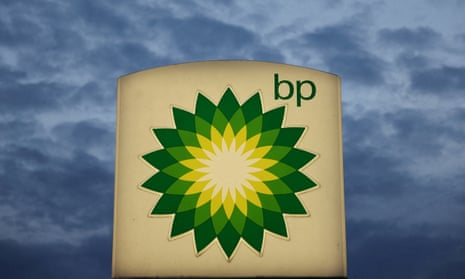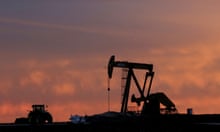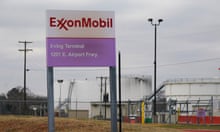BP has scaled back its climate ambitions as it announced that annual profits more than doubled to $28bn (£23bn) in 2022 after a sharp increase in gas prices linked to the Ukraine war boosted its earnings.
In a move that will anger campaigners, the oil and gas giant cut its emissions pledge and plans a greater production of oil and gas over the next seven years compared with previous targets.
The huge annual profit led to renewed calls for a toughened windfall tax, as oil companies reap rewards from higher gas prices while many households and businesses struggle to cope with a sharp rise in energy bills.
The Labour party last week asked for Britain’s energy profits levy to be revamped to capture more of the exceptional earnings made by oil and gas firms, after Shell’s profits more than doubled to $40bn, the biggest profits in its 115-year history.
Paul Nowak, the general secretary of the TUC, said hard-pressed families were being treated like “cash machines” and would “rightly feel furious”.
Calling for higher windfall taxes on oil and gas companies, he added: “As millions struggle to heat their homes and put food on the table, BP are laughing all the way to the bank.”
Kate Blagojevic, Greenpeace UK’s head of climate justice, said: “BP is yet another fossil fuel giant mining gold out of the vast suffering caused by the climate and energy crisis.
“What’s worse, their green plans seem to have been strongly undermined by pressure from investors and governments to make even more dirty money out of oil and gas. This is precisely why we need governments to intervene to change the rules.”
BP said it had incurred total taxes of $15bn worldwide – its highest annual total. In the North Sea, which it said accounted for less than 10% of global profits, it will pay $2.2bn in tax for 2022, including $700m because of UK windfall taxes, known as the energy profits levy – lower than the $800m it anticipated last year, due to falling gas prices.
Its chief executive, Bernard Looney, said he “would not be surprised” if its UK tax bill surpassed $3bn in 2023, adding that for every £4 the company made in the North Sea it paid £3 in taxes. “Over the last three years all the profit we’ve made in the North Sea we’ve either paid it all away in tax or reinvested it into Britain,” he said.
BP took a $505m accounting charge because of the EU’s version of the windfall tax.
The introduction last year of a windfall tax on North Sea oil and gas firms followed comments by Looney, in which he likened the company to a “cash machine” and admitted the levy would not prevent it making any planned investments.
Looney declined to comment on suggested alterations to the windfall tax. He told the Guardian: “Our role is to invest, our role is to pay our taxes … and our role is to return our value to our shareholders who happen to be millions of people, not faceless institutions.”
after newsletter promotion
The oil and gas company reported underlying profits of $4.8bn for the final three months of the year, bringing its annual earnings to $27.7bn, well ahead of the $12.8bn posted in 2021. BP’s previous annual profit record was $26.3bn in 2008.
The company announced it would hand more money to shareholders, increasing its quarterly dividend payout by 10% and spending a further $2.75bn buying back its own shares. BP handed back more than $14bn to shareholders in 2022.
BP’s results pleased investors, pushing up shares 7% on Tuesday, making it the biggest riser on the FTSE 100.
Looney announced that that BP expected the carbon emissions from its oil and gas production would fall by between 20% and 30% by 2030, when compared with 2019. Its previous target had been a 35-40% drop in emissions.
BP said that because it was holding on to some assets for longer and investing more in production, its oil and gas production would be about 2m barrels of oil equivalent a day in 2030 – 25% lower than in 2019, but its previous plan had been to cut production by 40%.
Responding to BP’s results, the shadow chancellor, Rachel Reeves, asked Jeremy Hunt in the Commons on Tuesday: “Will the government follow our lead and have a proper windfall tax to keep people’s energy bills down?”
The chancellor replied: “Our plans raised more money than [Reeves] was actually advocating in the autumn, but they were also balanced and fair because anything higher will stop investment, increase dependence on [Vladimir] Putin and increase energy prices.”









